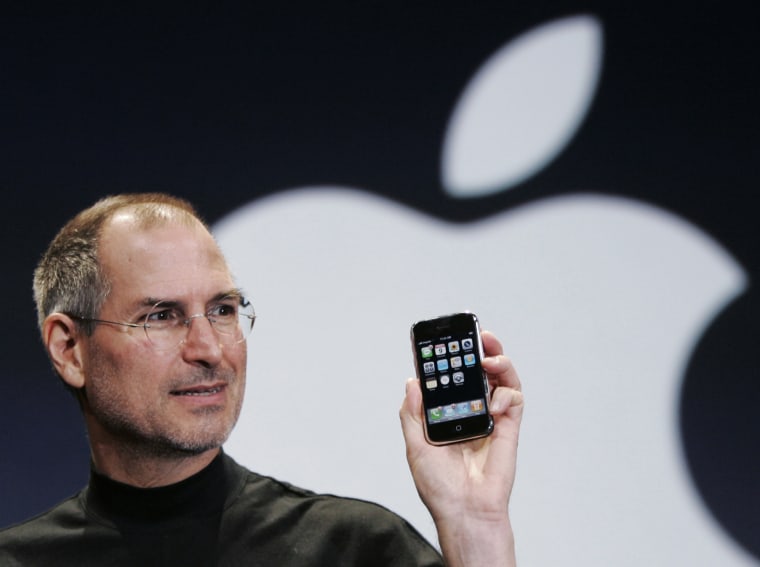"Every once in a while, a revolutionary product comes along that changes everything," said the late Steve Jobs, on January 9, 2007.
With that, the Apple CEO introduced the iPhone to the world, telling a crowd of journalists, analysts, and Apple employees that the phone "works like magic."
And boy was he right. Ten years on, the phone has completely revolutionized the cellphone, computer, and music industries — and sold over a billion units.
"There has been no Apple product with greater impact than the iPhone, for Apple, for the mobile industry, and because of the spread of mobile technology, for the whole technology industry," Ian Fogg, director at IHS technology, wrote in an analysis.
At the time, Nokia was a leading mobile phone handset company. Apple was able to establish its prowess by innovating each year and releasing annual hardware upgrades, Fogg said.
Costing $500, the first iPhone stood out from its competitors because it was flat, thin and had no buttons, instead utilizing touch screen technology.
Related: iPhone Mania Hits with the Release of Apple's iPhone 7
However, there was also a "healthy dose of skepticism," Patrick Moorhead, principal analyst at Moor Insights & Strategy told NBC News.
"Nokia and Blackberry dominated the phone scene and Apple did everything they did not, like remove the keyboard, which at the time, looked bad," Moorhead told NBC News. "The original iPhone was underpowered, and didn’t operate on the latest networks. But it had what no one else had, and that was touch and apps that actually felt good to use — and a compelling case about the future."
Apple's big bet paid off. In the past 10 years, the flat, buttonless phone has made the PC second fiddle and has become the main entry point for many people's digital lives.
In July 2016, Apple announced it had sold one billion devices — largely thanks to a loyal user base that upgraded every two years — or, for the diehards who need the latest and greatest — once a year.
"iPhone has become one of the most important, world-changing and successful products in history," Apple CEO Tim Cook said after the milestone. "It's become more than a constant companion. iPhone is truly an essential part of our daily life and enables much of what we do throughout the day."
It's also been the device that helped Apple become the world's most valuable company.
Looking ahead to 2017, Apple is predicting revenue between $76 billion and $78 billion for the first fiscal quarter. The projection was made in the company's last earnings report in October, and included a forecast for the 2016 holiday season.
Related: What Will the iPhone 8 Look Like?
Will Apple pull any extra surprises in honor of the iPhone's 10th year in the hands of customers?
We may have to wait at least a few more months. Judging by Apple's pattern of launches, it's likely the iPhone 8 — or whatever they choose to call it — will be introduced to the world in September.
